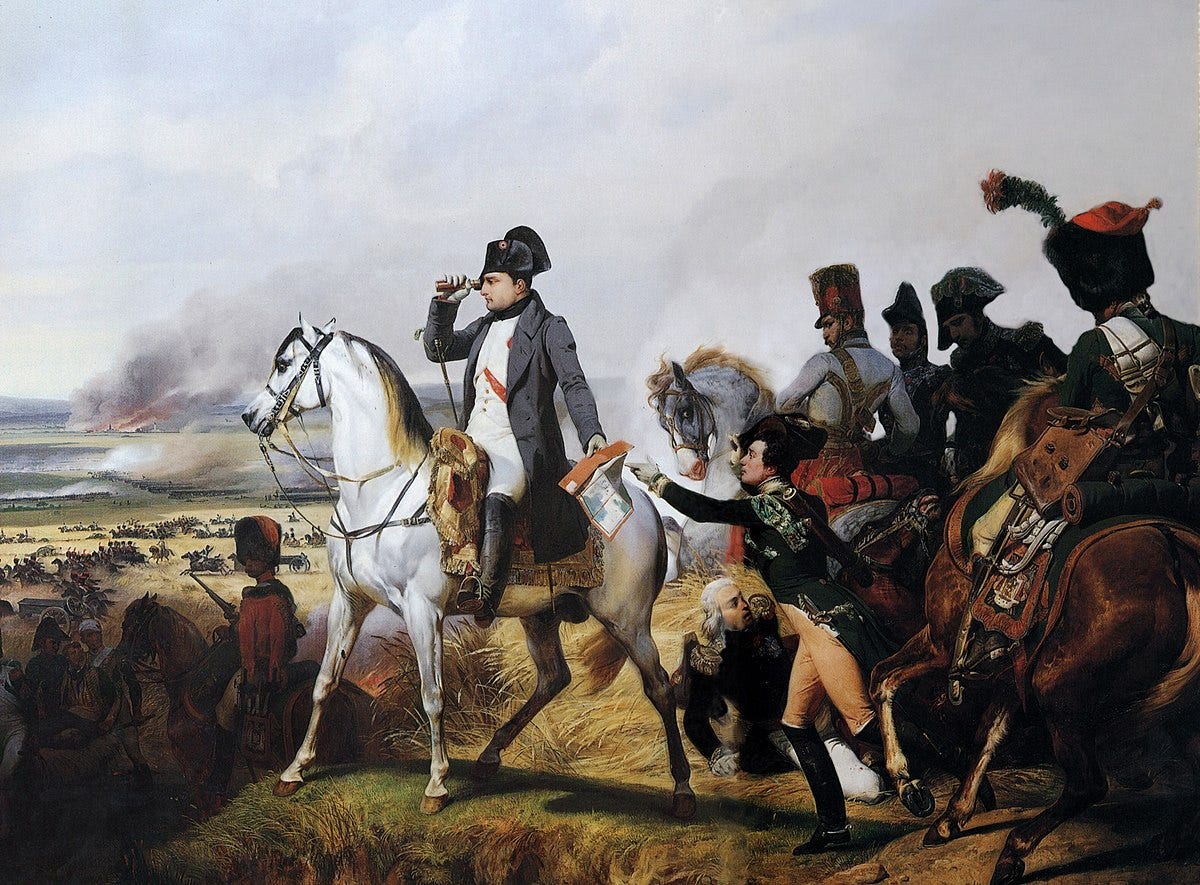Napoleon Bonaparte, a name synonymous with military genius and political intrigue, shaped the course of European history in ways few figures ever have. From his humble beginnings on the rugged island of Corsica to his rise as the formidable Emperor of France, Napoleon's journey is one of ambition, brilliance, and eventual downfall. His military campaigns redefined warfare, while his sweeping reforms left an indelible mark on French society and beyond. However, his quest for power also led to his exile and dramatic return, culminating in the fateful battle of Waterloo. In this blog post, we will explore the life, legacies, and lasting impact of one of history's greatest commanders, offering insights into a man who forever altered the European landscape.
Early Life and Military Training
Born on August 15, 1769, in the vibrant Mediterranean island of Corsica, which had only recently been annexed by France, Napoleon Bonaparte grew up in a family of modest nobility, and although his father, Carlo Bonaparte, was an influential lawyer and a representative of the Corsican Assembly, Napoleon's early life was characterized by a constant feeling of being an outsider among his French peers, which would later fuel his relentless ambition and drive to rise above his humble origins. His early education took place in mainland France, notably at a military academy in Brienne-le-Château, where he quickly distinguished himself as an exceptional student with a brilliant mind, especially excelling in mathematics and military history, and it was during these formative years that he developed a passion for military strategy and tactics, laying the groundwork for his illustrious career as one of history's most formidable commanders. It was the tumultuous context of the French Revolution that would ultimately offer him the opportunity to climb the ranks within the military, turning his education into practical applications as he joined the French artillery in 1785, where his profound understanding of military logistics and his knack for leadership soon became apparent.
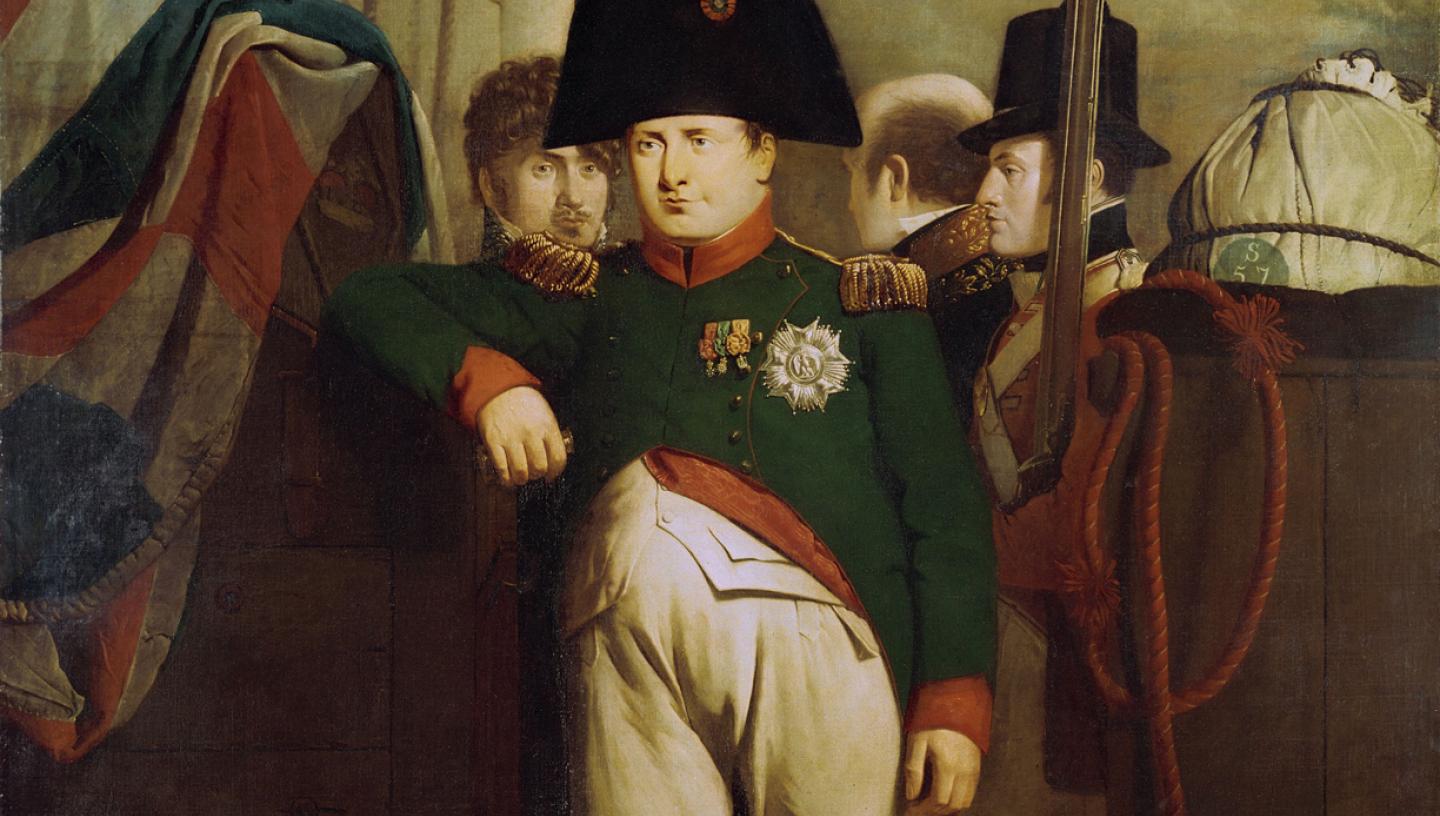
The Path of Military Training
Napoleon's military training began in earnest as the Revolution took hold, and with France facing the threats of foreign invasion and internal discord, young officers found themselves called upon to demonstrate their competence in battle and, more importantly, their loyalty to the revolutionary cause. The circumstances of the time required rapid promotions for those who could prove themselves, and Napoleon, showing unmatched tactical skills and an unyielding spirit during the Siege of Toulon in 1793, rapidly ascended through the ranks, achieving the rank of general at the astonishingly young age of 24. His command style, a unique blend of keen intellect, daring strategy, and charismatic leadership, endeared him to his troops and established his reputation as a military innovator, ultimately setting the stage for his future conquests across Europe.
Formative Influences and Strategic Thought
In terms of his strategic mindset, Napoleon was greatly influenced by the writings of military theorists such as Carl von Clausewitz and Antoine-Henri Jomini, whose theories on the principles of war resonated deeply with his own experiences and shaped his understanding of battlefield dynamics, leading him to develop his signature strategies that employed both speed and maneuverability to outsmart and outmaneuver his opponents. Furthermore, his time at the military school imbued him with a strong sense of discipline and an acute awareness of the importance of logistics, which became pivotal in his later campaigns, allowing him to keep his troops well-supplied and capable of sustaining prolonged engagements. Thus, as we examine the early life and military training of Napoleon Bonaparte, it becomes clear that these formative years were not just a backdrop, but rather a critical foundation upon which the rest of his illustrious career would be built; an era that highlighted the critical convergence of personal ambition, military expertise, and the broader currents of history that would soon propel him to unprecedented heights.
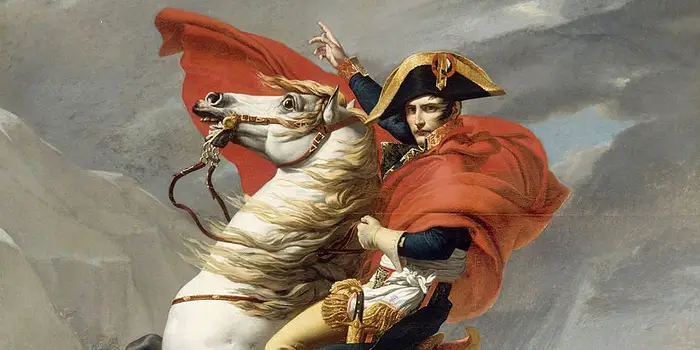
Rise to Power as Emperor of France
In the turbulent years following the French Revolution, a period marked by chaos, uncertainty, and political upheaval, a young and ambitious leader by the name of Napoleon Bonaparte began to emerge as a key figure upon the national stage, demonstrating an extraordinary ability to capitalize on the weaknesses of others while possessing a strategic vision for the future of France that would ultimately reshape the nation’s destiny. With his military prowess, he swiftly garnered not only the respect of his peers but also the adulation of the French populace, who were in desperate need of a unifying figure capable of restoring order and stability to a bewildered nation still recovering from the upheaval that had turned the old social order upside down. As France grappled with the challenges of reforming its government and society amidst the remnants of the monarchy and revolutionary fervor, it became increasingly evident that Napoleon was not just a general, but a man destined to take center stage as a leader whose legacy would resonate throughout history. The pivotal moment in Napoleon’s rise to power came in 1799, when he orchestrated a coup d'état that dismantled the existing governmental structure known as the Directory, leveraging both his military influence and political acumen to seize control under the guise of reviving a government that could effectively guide France toward stability. This audacious move culminated in the establishment of the Consulate, where Napoleon was named First Consul, solidifying his position as the primary decision-maker in French affairs while simultaneously navigating the complexities of political alliances and public opinion. It was during this time that he laid the groundwork for a new constitution, one that not only granted him significant power but also resonated with the populace by promising greater accessibility to government and reforms that aimed to simplify and modernize the French legal system. With the ratification of the Constitution of the Year VIII, Napoleon established the legal foundation for his authoritarian regime and went on to further consolidate his power, culminating in the declaration of himself as Emperor of the French in 1804, an act that not only symbolized the culmination of his ascent from military leader to sovereign monarch but also spoke to the paradox of his reign, as he simultaneously embodied both revolutionary ideals and monarchic authority. His coronation, held at Notre-Dame Cathedral, was a grand affair, wherein he took the crown from the Pope’s hands and placed it on his own head, signifying his assertion of sovereignty and independence from the church while also aligning himself with the revolutionary spirit that had initially propelled him to prominence. In this act, Napoleon Bonaparte did not merely elevate his own status, but he crafted a new narrative of governance in France that would steer the nation toward a powerful resurgence on the European stage. As Emperor, Napoleon implemented a series of domestic reforms that reinforced his authority and modernized the state, including the establishment of the Napoleonic Code, which provided a comprehensive legal framework that eliminated feudal remnants while ensuring the principles of equality before the law, and a centralized educational system designed to cultivate loyalty to the state; these reforms not only ingrained his legacy in the governance of France but also reflected a departure from the chaotic nature of the revolutionary past. Additionally, he was adept at utilizing propaganda to shape public perception, portraying his rise as a necessary step towards the fulfillment of France’s destiny, rallying the citizens around his vision of a powerful republic reborn from the ashes of the revolution, all while expanding his influence across Europe through both diplomatic and military means, which further galvanized the notion of French supremacy at the time. Ultimately, Napoleon’s ascent to power as Emperor marked a crucial inflection point in French history, as it fostered a new sense of identity and ambition that would not only define his reign but also leave a profound impact on the shaping of modern Europe and statecraft itself.
- Napoleon rises as a military leader in post-revolutionary France.
- With a coup d'état, he becomes First Consul.
- He establishes himself as Emperor, declaring sovereignty.
- Reforms strengthen state authority and modernize governance.
- His legacy forever alters the course of European history.
Military Campaigns and Conquests
Napoleon Bonaparte, a name that resonates through the annals of history, is renowned for his exceptional military genius and remarkable ability to conduct campaigns that not only changed the landscape of Europe but also altered the course of nations, deeply influencing the art of warfare and strategies employed in numerous military operations and engagements. His tenure as a commander was characterized by numerous pivotal battles and campaigns that showcased not just his innovative tactics but also his remarkable leadership skills, which allowed him to inspire his troops and ensure their unwavering loyalty through the various trials of war. The Napoleonic Wars, a series of conflicts spanning from 1803 to 1815, exemplify his ambition for expansion and the way in which his military campaigns expanded French influence across the continent, from the Iberian Peninsula to the territories in the heart of Central Europe.
| Campaign | Year | Outcome |
|---|---|---|
| Italian Campaign | 1796-1797 | French Victory |
| Egyptian Campaign | 1798-1801 | Stalemate |
| Austerlitz | 1805 | Decisive French Victory |
| Peninsular War | 1808-1814 | Stalemate/Spanish Victory |
| Russia Campaign | 1812 | Disastrous Loss |
| Waterloo | 1815 | Final Defeat |
One of his most significant early victories, the Italian Campaign, laid the groundwork for Bonaparte’s rise, showcasing his ability to maneuver larger armies effectively while utilizing speed and surprise to achieve confrontational successes against the Austrians and their allies. The campaign culminated in the Treaty of Campo Formio, which effectively placed Northern Italy under French control, demonstrating not only his military prowess but also his capacity to leverage political outcomes from his victories on the battlefield. However, his ambitious foray into Egypt, aimed at disrupting British trade routes and establishing a French presence in the region, ultimately led to a stalemate and was marred by logistical challenges and local resistance, but it nevertheless solidified his reputation as a formidable military leader. As Napoleon continued his quest for dominance, the Battle of Austerlitz in 1805, often regarded as one of his greatest tactical masterpieces, displayed his remarkable ability to anticipate the movements of his adversaries, resulting in a decisive victory against the combined forces of Russia and Austria, and ultimately leading to the signing of the Treaty of Pressburg, which expanded French dominance in Europe significantly. However, not all of his campaigns yielded favorable outcomes; the Peninsular War, initiated in 1808, became a drawn-out conflict characterized by guerilla warfare led by Spanish and Portuguese forces, which drained French resources and attention, ultimately becoming a significant thorn in his side throughout his reign. The catastrophic invasion of Russia in 1812 was a notable turning point, as an overextended supply line and harsh winter conditions led to a dramatic and devastating loss of troops, illustrating the vulnerabilities even a commander of Bonaparte's caliber could face under challenging conditions. In conclusion, Napoleon's military campaigns and conquests were marked by brilliant strategies and tactical innovations, but they also reflected the inherent risks and potential pitfalls of ambition without restraint. His ability to secure rapid victories and instill a sense of purpose among his men was counterbalanced by the strategic overreach that ultimately led to his undoing, making his campaigns a vital subject of study for military historians and strategists alike. The legacy of these campaigns, not only in terms of territorial gains but also in their profound influence on military theory and practice, continues to resonate throughout modern military thought, ensuring that the name Napoleon Bonaparte remains synonymous with both the pinnacle of military success and the cautionary tales of overambition in warfare.
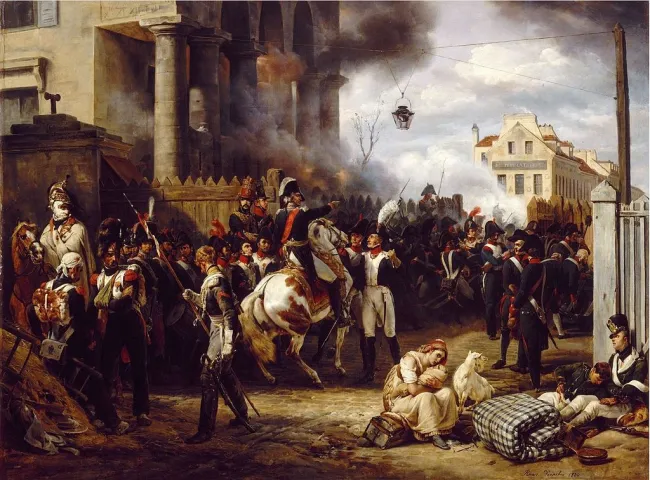
Napoleon's Reforms and Legacy
Napoleon Bonaparte, a figure synonymous with revolution and rapid transformation, implemented a range of reforms that not only reshaped France but also had a profound impact on Europe and beyond, as he sought to consolidate his power and modernize the nation that became the cornerstone of his empire. His reforms encompassed various sectors, including law, education, and governance, which reflected his vision of a centralized state that promoted meritocracy over aristocratic privilege and sought to establish a new social order that favored loyalty to the state and an ambitious approach to social mobility. One of the most significant legacies of Napoleon was the establishment of the Napoleonic Code, a comprehensive legal framework that served to unify the laws of France under a single document, thereby abolishing feudal privileges and laying the foundation for a more equitable legal system that emphasized civil rights, protection of property, and secular governance. This code not only transformed the French legal landscape but also inspired legal systems around the world, where many nations adopted elements of the Napoleonic Code in their own laws, further extending the influence of napoleon bonaparte well beyond the borders of France.
- Educational Reforms: Napoleon established the Lyceé system, promoting secondary education to cultivate a skilled and educated populace, ensuring that citizens were equipped to contribute to the state.
- Economic Reforms: He founded the Bank of France and stabilized the currency, setting the stage for a more robust economy that could support his military ambitions and sustain the state's finances.
- Religious Reforms: The Concordat of 1801 with the Pope redefined the relationship between church and state, balancing religious authority with state sovereignty while maintaining religious freedoms for believers.
The table below illustrates some of the key reforms implemented by Napoleon and their corresponding impacts:
| Reform | Description | Impact |
|---|---|---|
| Napoleonic Code | Unified legal system with principles of equality, secularism, and civil rights. | Established a legal legacy that influenced numerous countries worldwide. |
| Lyceé System | Created secondary schools to provide a standardized education. | Increased literacy and educational attainment in France, fostering a knowledgeable citizenry. |
| Bank of France | Founded to stabilize currency and manage state finances. | Contributed to financial stability and economic growth, supporting military and state needs. |
Napoleon's reforms extended beyond legal and educational changes; they were pivotal in rejuvenating the French economy by implementing measures that encouraged industrialization and infrastructure development, such as the construction of roads and bridges that facilitated trade and communication across the nation. This infrastructure revolution not only bolstered Napoleon's military logistics but also ushered in an era of connectivity that democratized access to commerce and opportunity for the average citizen. Ultimately, the legacy of napoleon bonaparte lies not solely in the reforms he instituted during his rule but also in the enduring influence these reforms had on subsequent generations and nations. As a formidable architect of modernity, Napoleon's vision for a strong, centralized state with a focus on merit and civil liberties continues to resonate today, demonstrating how his ambitious undertakings shaped the trajectory of not only France but eventually the entire continent of Europe. The principles he established are embedded in modern governance, law, and education, proving that the impact of his reign transcends the confines of time and geography.
Defeat and Exile to Elba
The year 1814 marked a significant turning point in the remarkable saga of Napoleon Bonaparte, as it was during this tumultuous period that he faced a devastating military defeat at the hands of the allied forces, a coalition which included Britain, Prussia, Russia, and Austria, ultimately leading to his abdication—a moment that would not only reshape the political landscape of Europe but also signify the beginning of a new chapter in historical memory. Following his abdication from the French throne, Napoleon was exiled to the small island of Elba, which lies in the Mediterranean Sea, and this strategic placement was meant to restrict his influence while allowing him a semblance of autonomy, as he was granted the title of Emperor of Elba, even though his days in power were dramatically curtailed. As he settled into this semi-retirement, the echoes of military glory and imperial dreams were replaced by the quietude of island life, yet his indomitable spirit and ambition remained, creating a tension that would soon come to a head. As Napoleon adjusted to his new surroundings, he began to engage in the administration and development of Elba, understanding that the island could potentially serve as a base for his resurgence, as he established reforms and invested in infrastructure, demonstrating that even in exile, he retained the vision of a leader aiming to foster progress and stability. I carry with me a great consciousness of my past, Napoleon reportedly said, reflecting the complex feelings he held towards his formidable legacy. His charismatic presence and the admiration of some islanders ignited whispers of rebellion and possibility, foreshadowing the dramatic events that would follow. In contemplating the implications of Napoleon's exile to Elba, it is essential to understand how this significant event both curtailed his ambitions temporarily and also laid the groundwork for his eventual return to power. The allied powers believed that they had successfully contained the threat he posed, but the seeds of discontent that he sowed during his rule were not easily extinguished, thus igniting the following cycle of events. The internal politics of France continued to shift, and, as tension mounted within the European powers, it became apparent that Napoleon's time on Elba would not silence the calls for his return; it set the stage for his audacious comeback in 1815. To further comprehend the consequences of Napoleon's defeat and exile, it is important to consider the key points surrounding this period:
- His abdication was a direct result of military losses against the Sixth Coalition.
- Napoleon was exiled to Elba, which was intended to be a secure but relatively comfortable locale.
- While in Elba, he maintained a sense of authority and made administrative changes.
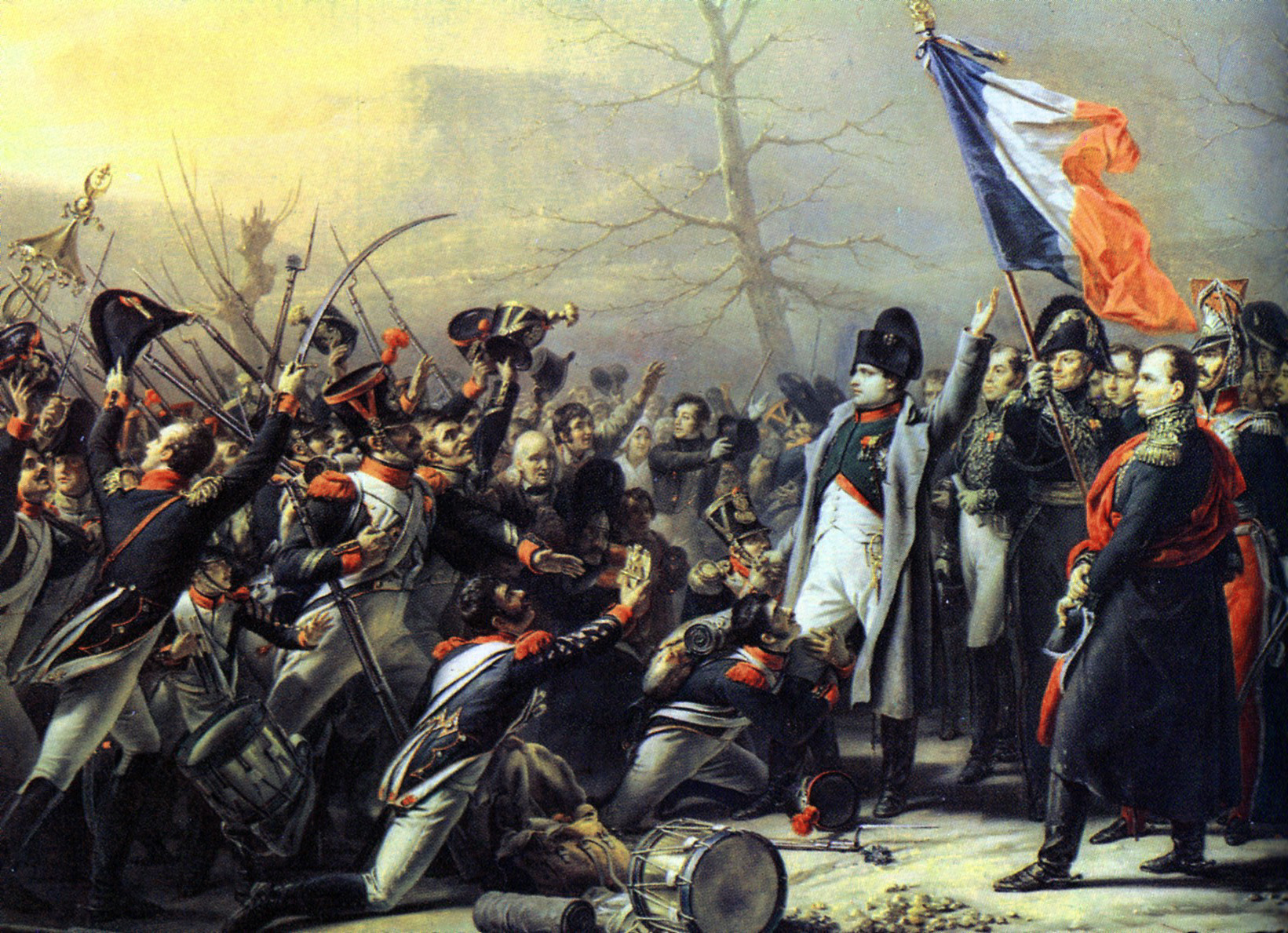
Return and Final Defeat at Waterloo
In the spring of 1815, Napoleon Bonaparte, who had been exiled to the remote island of Elba, made a dramatic return to France, a move that ignited both hope and fear across Europe, as he deftly rallied the loyalty of soldiers and citizens alike, quickly reclaiming his status as Emperor in a matter of days, much to the chagrin of the ruling powers who had previously conspired to remove him from power. His triumphant return set the stage for what would be one of the most monumental conflicts in European history, leading to the events that unfolded at the Battle of Waterloo, which would ultimately seal his fate. Leading a newly-formed army, Napoleon sought to expand his influence once again, believing that he could reclaim his former glory, though such ambition would soon collide with the formidable alliances forming against him. The Battle of Waterloo, fought on June 18, 1815, was a pivotal confrontation between Napoleon's French forces and the Seventh Coalition, a formidable alliance that included the British and Prussian armies, led by the Duke of Wellington and Gebhard Leberecht von Blücher respectively, with both leaders determined to put an end to Napoleon's reign for good. The battlefield, located near the small village of Waterloo in present-day Belgium, became the stage for this fierce encounter, characterized by intense combat and strategic maneuvers, yet ultimately it was the combined strength and coordination of the coalition forces that proved decisive in this critical moment in history. As the hours of battle wore on, the resolve of Napoleon's troops began to wane, undermined by tactical miscalculations and the arrival of Blücher’s forces, which dealt a severe blow to the already beleaguered French army. In the aftermath of the battle, the consequences were both immediate and profound, as Napoleon Bonaparte, facing a catastrophic defeat, was forced to abandon the battlefield and subsequently surrender to the authorities, marking the end of his rule and the start of a new chapter in European politics. Following his defeat at Waterloo, it became inevitable that the great commander would be exiled once again, this time to the remote island of Saint Helena in the South Atlantic Ocean, where he would spend the remaining years of his life in isolation, far removed from the power and grandeur he once wielded. The Battle of Waterloo not only signified the termination of his influence over Europe but also paved the way for a new balance of power, as the various nations sought to restore stability in the aftermath of two decades of upheaval fueled by his campaigns. The fallout from Waterloo had a lasting impact on Europe, leading to an era of relative peace known as the Congress of Vienna, where world leaders gathered to negotiate territorial boundaries and establish a framework aimed at preventing the rise of a figure like Napoleon once more. In retrospect, the return and final defeat of Napoleon Bonaparte at Waterloo serve as a salient reminder of the impermanence of power and ambition, giving rise to a historical legacy that would be dissected and analyzed for generations to come. In the grand tapestry of history, the events surrounding Waterloo not only symbolized the culmination of Napoleon's meteoric rise and equally profound fall, but also the transformative waves of change that he set into motion through his passionate pursuit of glory.
- The factors that contributed to Napoleon's defeat included:
- Poor communications and coordination among his forces.
- The strategic advantage held by the coalition forces, especially the timely arrival of the Prussians.
- The fatigue and dwindling morale of his troops, who faced increasing pressure and losses during the battle.
- The aftermath of the battle had remarkable implications, such as:
- The establishment of the Congress of Vienna, which aimed to prevent future conflicts.
- The restoration of monarchies across Europe, leading to a pushback against revolutionary ideals.
- Enduring admiration and mythology surrounding Napoleon Bonaparte in French and world history.
Death and Legacy in History
As the sun set over the South Atlantic on May 5, 1821, the world bore witness to the end of an era with the passing of Napoleon Bonaparte, a figure whose monumental impact on Europe and the globe was both profound and polarizing, leaving behind a legacy steeped in revolutionary ideals and contentious military exploits that have continued to shape diplomatic relations, national borders, and social structures well into the modern age. In the years following his demise, the question of how to accurately interpret his contributions and the ramifications of his ambitions has spawned endless debates among historians, political theorists, and even laypeople, whose interpretations vary as widely as the nations that felt the tremors of his reign. Thus, while Napoleon Bonaparte's life may have reached its conclusion on the island of Saint Helena, the echoes of his existence remain pervasive within the historical narrative of not only France but also the greater tapestry of European development.
The Final Days of Napoleon Bonaparte
Napoleon's final days were marked by a mix of solitude and reflection, as he grappled with both his past glories and the stark reality of his fall from power; exiled to the remote island of Saint Helena, he lived in a state of semi-isolation, attended by a small entourage and subjected to the scrutiny of British authorities, which provided a stark contrast to the grandeur of his former palaces in Paris. It was during this period that Napoleon sought solace in reflection, writing memoirs and analyzing his military strategies, thereby hoping to influence future generations while proffering lessons on governance, warfare, and human ambition. His writings, rich with insight and marked by a keen understanding of political maneuvering, have added complex layers to the legacy he left behind, serving also as a window into the mind of a man who once held vast power and shaped the courses of nations.
The Legacy of Napoleon in Modern Context
The legacy of Napoleon Bonaparte, though mired in controversy, has emerged as an undeniable force in shaping contemporary Europe, where the very principles of nationalism and statehood he fostered have had lasting effects on the identities of nations across the continent. Many would argue that his military strategies and reforms laid the groundwork for numerous modern governmental and military institutions, as his influence can be seen in legal frameworks — notably the Napoleonic Code — which served as a precursor to legal systems in many countries. Furthermore, the sweeping changes he implemented during his time in power, such as educational reforms and merit-based appointments in the bureaucracy, have continually echoed through history, serving as a foundation upon which modern European societies were built.
- The Napoleonic Code revolutionized civil law in many nations.
- His promotion of meritocracy influenced modern bureaucratic systems.
- Nationalism, a byproduct of his campaigns, reshaped the political landscape of Europe.
- His military tactics are still studied in military academies worldwide.
- Public education reforms initiated by Napoleon fostered a culture of learning that persists today.
Impact of Napoleon on Europe
The historical figure of Napoleon Bonaparte, through both his military genius and his reformative policies, left a significant imprint on the geopolitical landscape of Europe, altering not only the borders of nations but also the very fabric of society and governance within those nations, thereby sowing the seeds for modern nation-states as we understand them today. His ambitions, coupled with his tactical prowess, led to a series of military campaigns that overthrew established regimes and redefined the power dynamics between states, ultimately pushing Europe toward an era of nationalism that would shape its collective consciousness and geopolitical strategies for centuries to come.
Political and Social Reforms
Napoleon Bonaparte implemented a number of significant reforms that would endure well beyond his reign, and these changes were particularly evident in the realms of law and education, where he established the Napoleonic Code, a comprehensive set of laws that abolished feudal privileges and promoted equality before the law, ultimately serving as a model for legal systems across the continent. Furthermore, his establishment of centralized administrative systems not only modernized governance but also inspired other nations to create standardized bureaucracies, allowing for more efficient and effective management of state affairs. As a result, the ethos of meritocracy championed by Napoleon diminished the aristocratic hold on power and promoted the idea that talent and ability, rather than noble birth, should determine leadership and opportunity, an idea that significantly influenced the social order in Europe.
Nationalism and Revolutions
The impact of Napoleon's campaigns and subsequent reforms contributed to the rise of nationalism throughout Europe, as his conquests awakened national identities in various regions, leading to a longing for self-determination that would sweep across the continent in the 19th century. This surge of nationalistic sentiment was particularly evident in areas like Germany and Italy, where the desire for unification became a driving force for future political movements, with groups advocating for national unity becoming increasingly influential in shaping the political landscape. Additionally, the reaction against Napoleon's authoritarian methods and the spread of revolutionary ideals further ignited a series of uprisings and revolutions in the years following his downfall, including the 1848 revolutions which sought to address the democratic deficits that persisted in many European nations.
- Napoleonic Code inspired legal reforms across Europe.
- Centralized administrative systems modernized governance.
- Abolition of feudal privileges promoted social equality.
- Nationalism surged in response to Napoleonic conquests.
- Influenced unification movements in Germany and Italy.
- Set the stage for future revolutionary uprisings across the continent.
Frequently Asked Questions
Who was Napoleon Bonaparte?
Napoleon Bonaparte was a French military leader and emperor who rose to prominence during the French Revolution and its associated wars.
What were Napoleon's main achievements?
Napoleon is known for his military conquests across Europe, the establishment of the Napoleonic Code, and significant reforms in education and governance.
How did Napoleon rise to power?
Napoleon rose to power through a combination of military success, political acumen, and a coup d'état in 1799, which led him to become the First Consul and later Emperor.
What was the Napoleonic Code?
The Napoleonic Code, established in 1804, was a comprehensive set of civil laws that influenced legal systems worldwide and emphasized equality before the law.
What were the major campaigns led by Napoleon?
Major campaigns include the Italian Campaign, the Egyptian Campaign, and the campaigns during the Napoleonic Wars, particularly the Battle of Austerlitz.
What led to Napoleon's downfall?
Napoleon's downfall was due to a combination of factors, including military defeats, notably the disastrous invasion of Russia in 1812, and the rise of coalitions against him.
What is Napoleon's legacy?
Napoleon's legacy includes significant contributions to modern statecraft, military strategy, and legal frameworks, along with discussions on leadership, ambition, and the impact of war.


